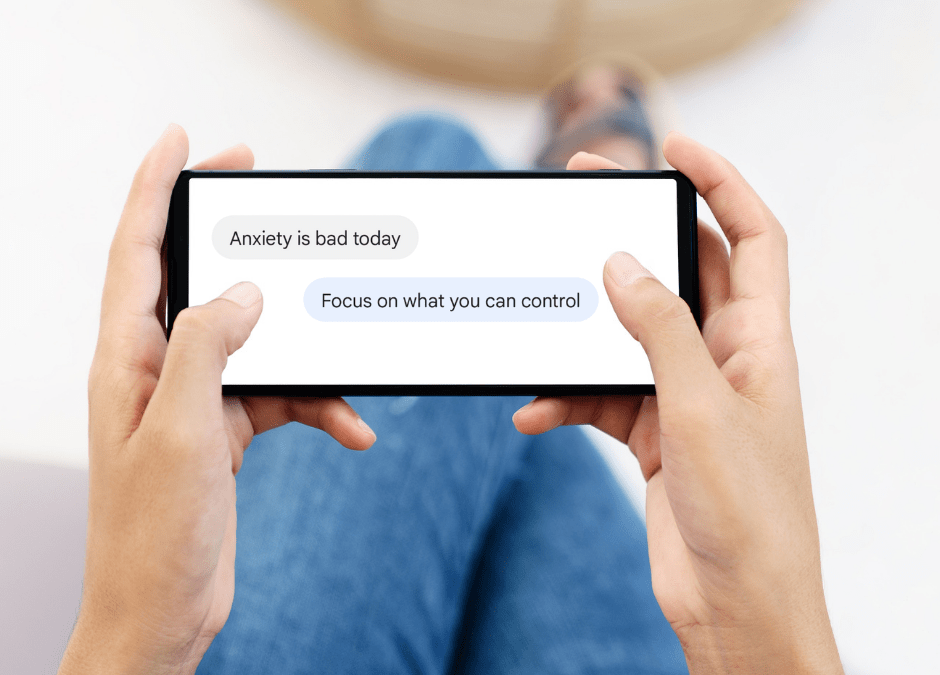My daughter was recently feeling some anxiety at school and texted to let me know. One of the responses I texted back was to “focus on what you can control.” It had an impact, and she decided to post it on social media. The next day she told me it was her most shared post ever – it resonated with many of her followers.
Later that week, a coaching client shared a challenge she had encountered when an unexpected issue arose that stopped her in her tracks. It caused her stress and frustration and caused her to lose many hours of time. As we talked through her reaction to the situation, I asked her, “Looking back, what could you control about the situation at that moment?”, “What was the appropriate reaction?”, “What next steps did you take, or could you have taken?”
With so much out of our control on a daily basis, it’s important to control what we can, be intentional about our thoughts and choices, and act based on this. It’s not always easy but worrying about things we have no control over wastes time and energy and increases stress.
Below are a few tools you might consider to help you focus on those things you can control, so you can better cope with the unexpected and uncontrollable.
Plan
Do you often feel you are constantly reacting to the current “fire” or “squeaky wheel”? Some believe there is no use in planning if things are out of your control anyway. But, this is exactly the reason for it. Planning allows you to gain control over your time and actions in a proactive way. It gives you a better understanding of what is urgent and what is important. Then when the unexpected occurs you can more easily adjust and make intentional choices about if, and how, it fits into your plan. By planning you are making a habit of “focusing on what you can control.”
Stop and Think, Then Act
When the unexpected occurs, or you are feeling anxiety at a certain moment, step back from the situation and ask yourself the following questions:
-
- What can I control about this situation or about what I am feeling?
- Is this my worry or my challenge to handle or does it belong to someone else?
- What specific action(s) can I take to move forward?
Taking a moment to answer these questions will allow you to refocus and transition from being reactive to proactive, allowing for intentional choices about your next thoughts and actions.
Journal
If you are someone who best processes information by writing, take some time to journal your answers to the questions above. Journaling daily on anything that weighs on your mind is a great habit to develop to gain control over your thoughts and actions.
Meditate or Pray
Depending on your spiritual preference, tools such as meditation and prayer can help keep your mind focused and present, along with other benefits. Practicing regularly will help train your mind to react in a more relaxed and focused way when dealing with unexpected and challenging situations. There are many free apps that can help you learn and practice these techniques including Calm, Headspace, and Insight Timer.
What tools or techniques have you found to help you decrease anxiety and stress and focus on the things you can control? Share them in the comments below!


Great advice, Lori. And coming at a very appropriate time.
Thank you, Harold. That means a lot coming from one of the top time management experts. It has been a difficult couple years and so important to continue to control what we can. All the best.
I’ve worried and stressed so much about things that are out of my control, it just got to a point where it became too obvious what I was doing to myself: wasting all that emotional and mental energy. I now start by first taking some time to consciously separate: What’s within my control in this situation, and what’s not? And then I focus on the most high-impact thing I can do, and tell myself: That’s it, you did your best. Now move on. Very simple, but it works for me, and gives me much more calm and peace.
I love this thought process and your idea to focus on one “high-impact” thing. This can help get our mind off all of those things we CAN’T control and help us to move forward. Thank you for your insight!